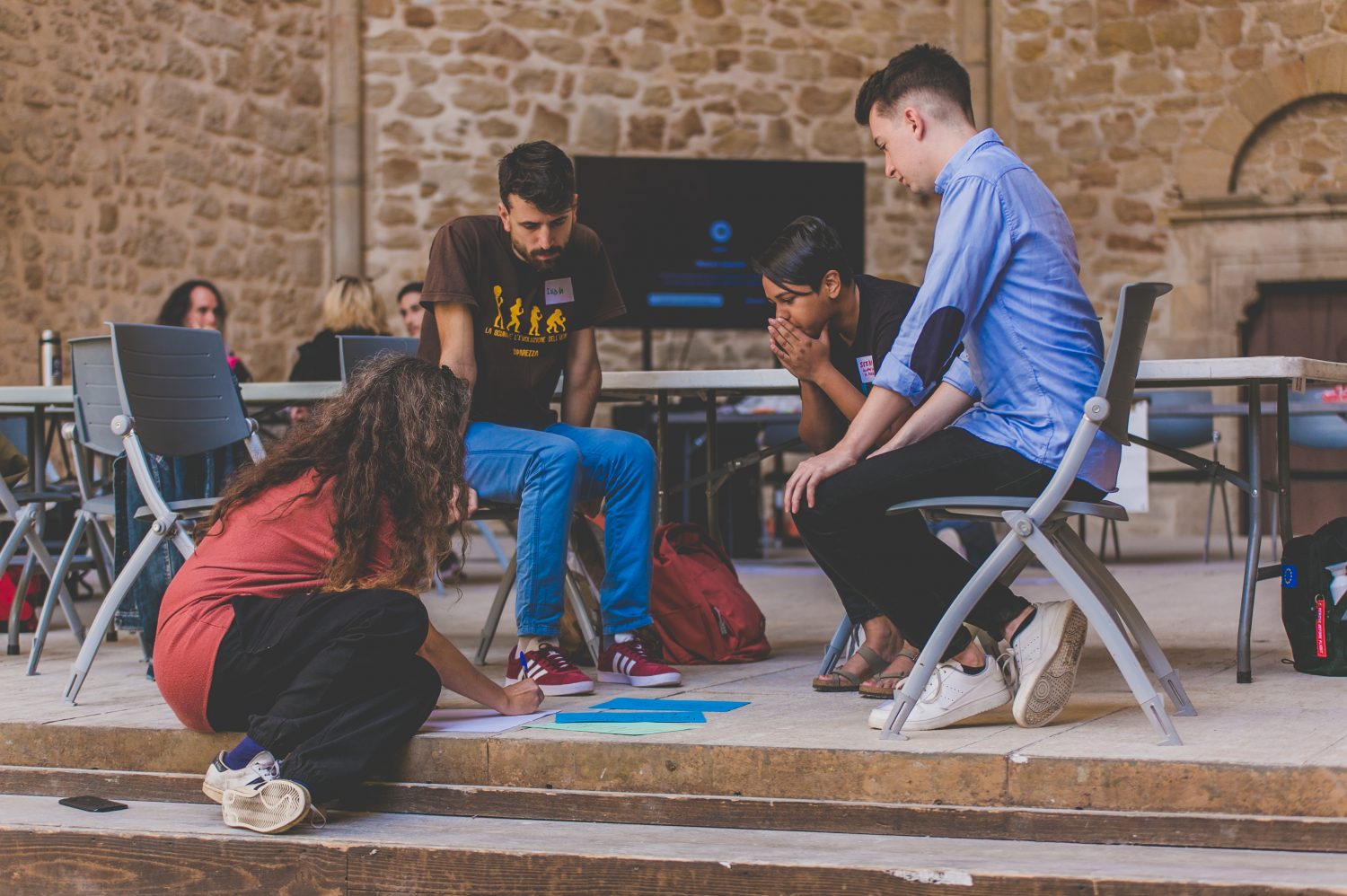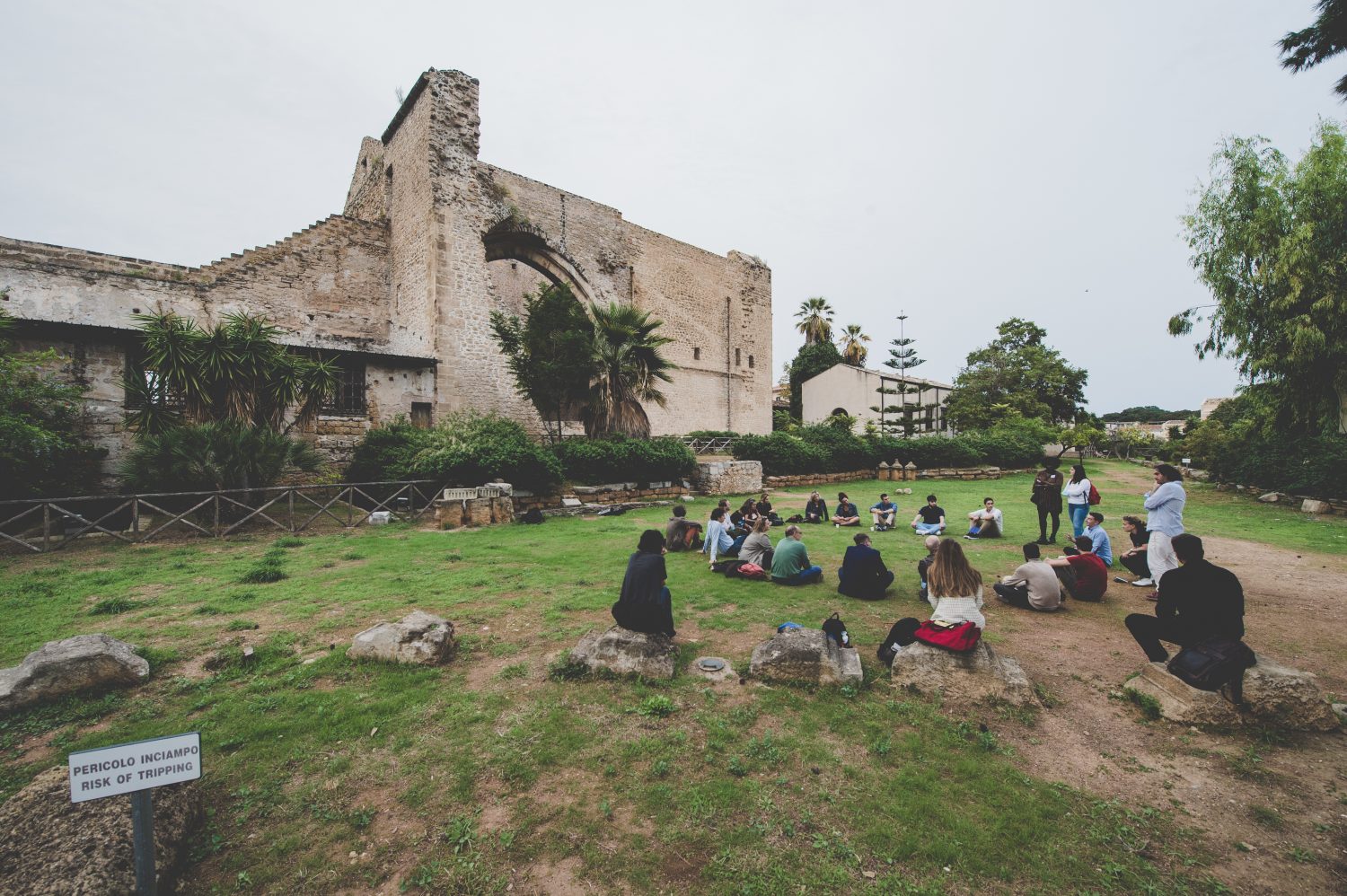James Mackay gives a taster of a project seeking to re-imagine Europe as a laboratory for planetary politics
What’s the first thing that comes to mind when you think about citizens’ assemblies? Chances are you’ve got an idea of people talking: in a room, a café, a library, a theatre, a bar, perhaps even a park. You might imagine flipcharts, mind maps, whiteboards, multicoloured pens and so on. There might be experts, facilitators, tablets and touchscreens. Personally, I find myself focusing on sound. The buzzing of animated conversation between people with different backgrounds and beliefs, all coming together to confront political problems in a beautiful, polyglot multitude.


Of course, it’s hard to generalize. An assembly is a broad concept. Tantalizingly so. Governments around the world are increasingly using assemblies as policy-making tools, to assist with problem-solving on issues from climate to social rights to migration. Trade unions and grassroots movements have used assemblies for centuries to build communities and develop democratic strategies for achieving social justice. More recently, a whole range of institutions – from schools to corporations – have started exploring how assembly-like methodologies could democratize decision-making and improve bad bureaucracy.
Assemblies should be more than consultations. They are highly structured conversations that seem to lean towards something: towards specific political decisions, yes, but also towards a more general goal of centring citizens in the democratic process. Personally, I like to think of assemblies as collectively authored poems; rigorous arrangements of form and content – structures of affective relations – which, when organized properly, have the potential to generate new horizons for thinking and decision-making.
Assemblies force us to ask tough, foundational questions about our democracies. What do we even mean by citizens, for example? And what does that imply about other categories of people? What does it mean – really – to make collective decisions? What does it mean to speak, to listen? Assemblies, refreshingly, force us to address these questions through real world design proposals. Every aspect of an assembly, from the selection of participants to the moderation and framing of recommendations to the follow-up has direct bearing on the kind of societies we imagine into being. For the past few months, I’ve been thinking hard about these questions with friends and colleagues – including many at European Alternatives – as we prepare to launch “The Democratic Odyssey.” The aim of this new project is to celebrate the long tradition of deliberative democratic experiments that goes right the way back from the ancient citizens’ assemblies and which extends far into the future. Our Odyssey is not pegged to Homer’s epic text – though that is an important source of symbolic inspiration! We want to make a broad intervention of our own and launch an epic journey involving ships big and small, with flags of all kinds. Anyone is welcome to join, to share ideas, inspiration and criticism.
Next year we will put our theories into practice by organizing a big prototype transnational assembly in Athens, bolstered by mini-assemblies around Europe before and after. We’re not aiming at making a ‘perfect’ assembly (whatever that would even mean). Our hope is more modest: to offer a “proof of concept” that, in the window between the EP elections but before the new Commissions convenes, can bring grassroots and institutional actors together to consider how citizens’ participation can be institutionalised in the longer term. Inevitably, we’ll face storms and monsters along the way. But we also trust we’ll find islands of sanctuary and solidarity, oases of imagination, hope and pragmatism. As we set sail for Athens – with the wind in our sails, and so much to gain – we hope many of you will join us at the front of the flotilla, to help chart the course ahead.
James Mackay is a writer and journalist based in Florence, Italy. He is the author of The Invention of Sicily: A Mediterranean History (Verso 2023) and a regular contributor to The Guardian, The New Statesman, Frieze, The TLS and Art Review among others publications. He is currently working at the European University Institute’s Transnational Democracy Programme, co-ordinating research on citizens’ assemblies and other democratic innovations.
The Democratic Odyssey is a decentralized, collaborative and transparent exercise of crowdsourcing and co-creation kicked-off by a Core Consortium composed of The European University Institute, Particip-Action, European Alternatives, Citizens Take Over Europe, The Democracy and Culture Foundation. This community is open to all who want to be involved. To find out more, just write to: james.mackay@eui.eu .